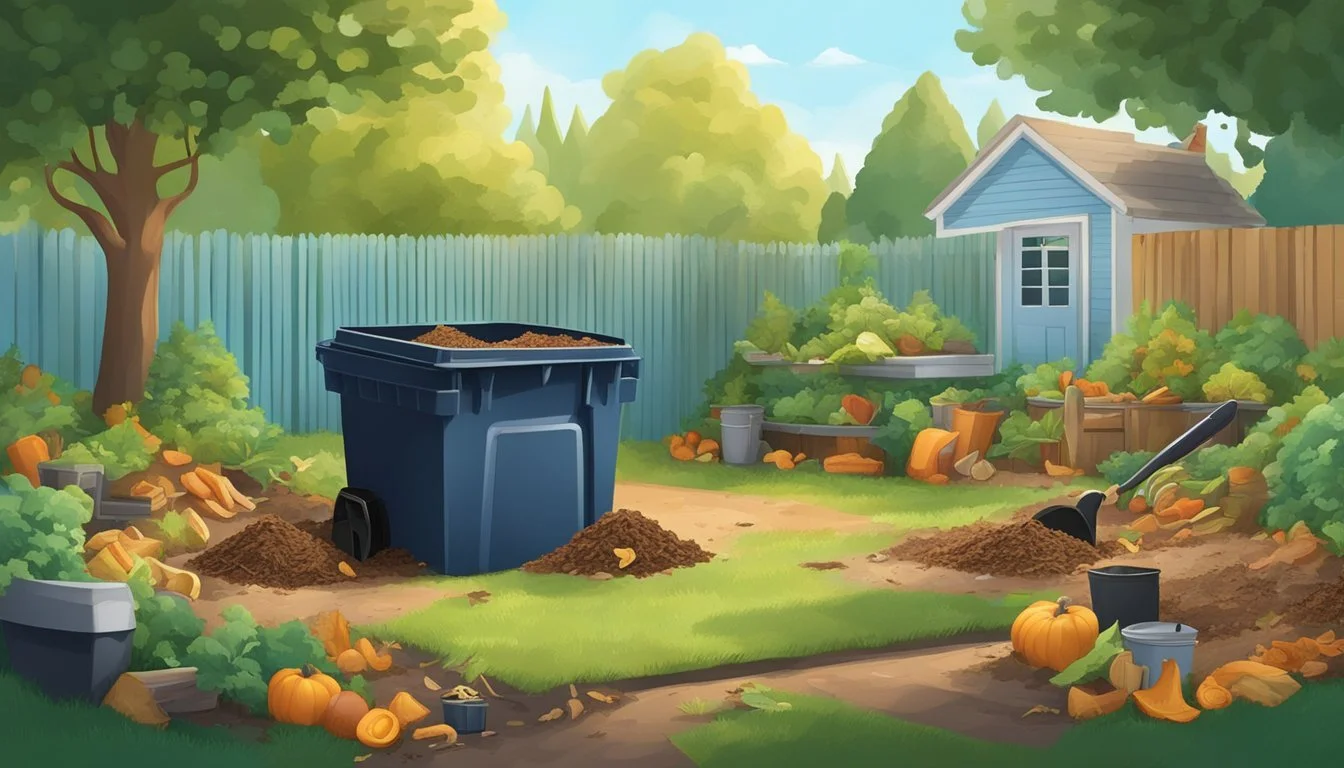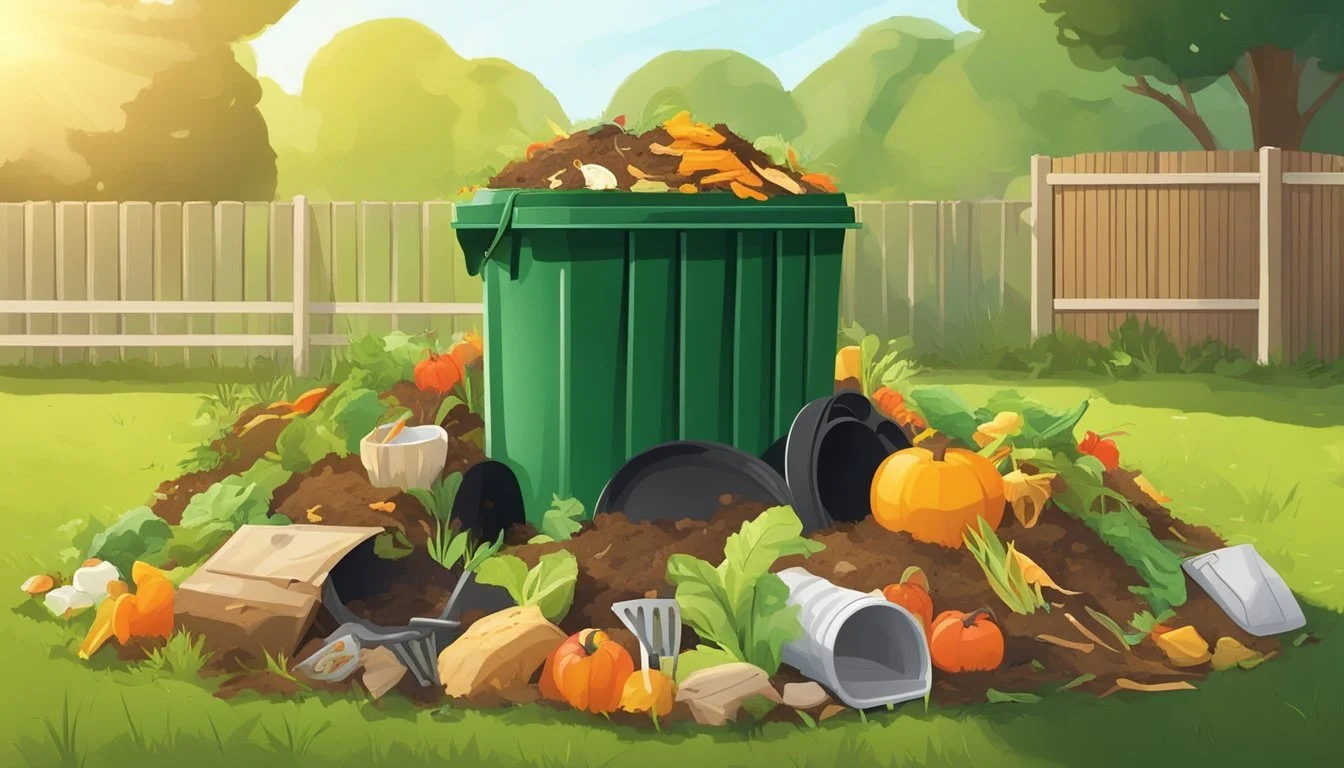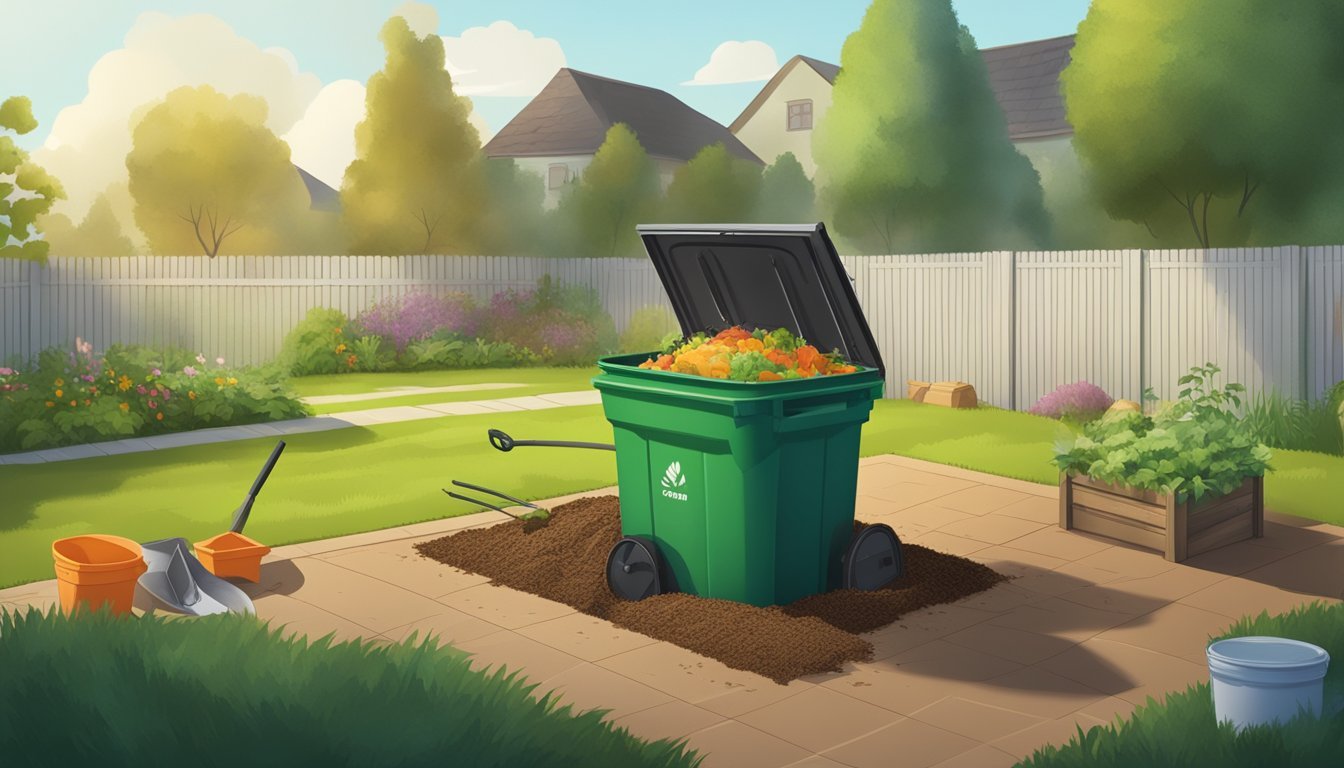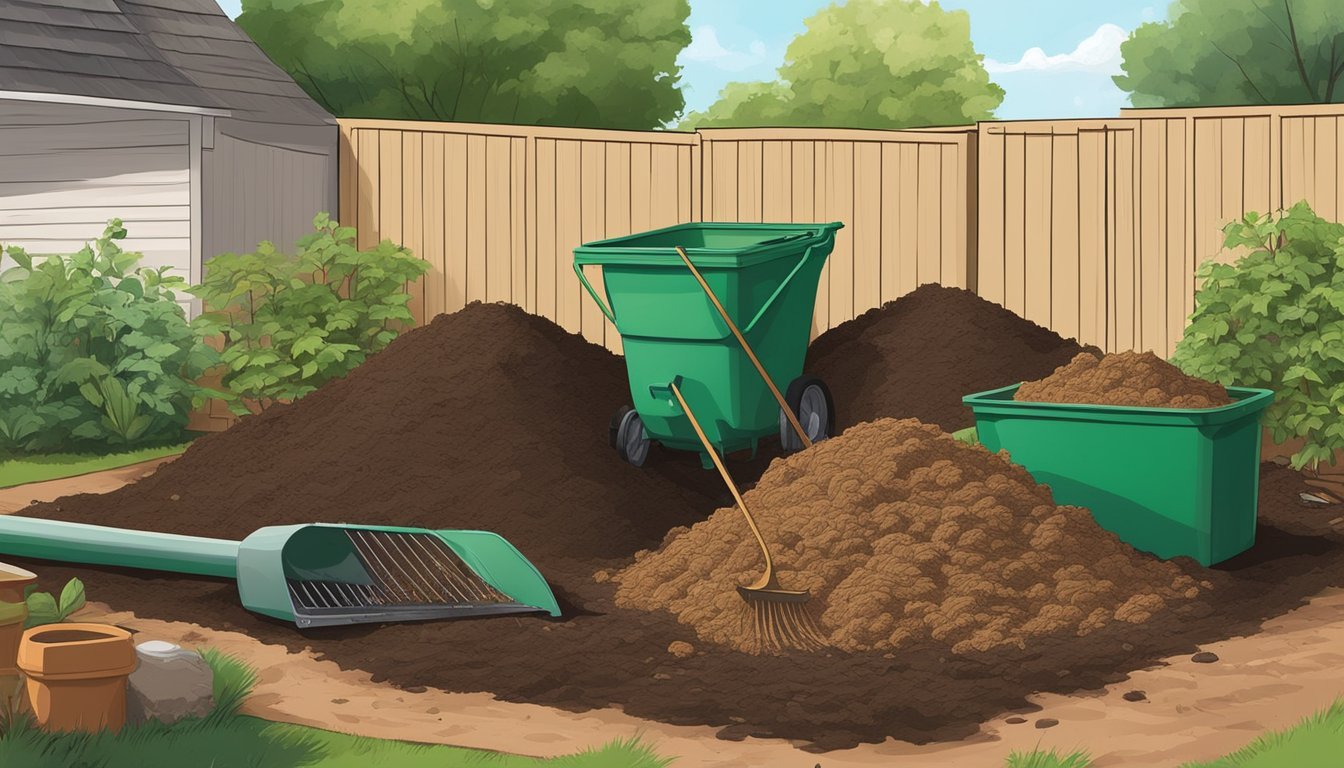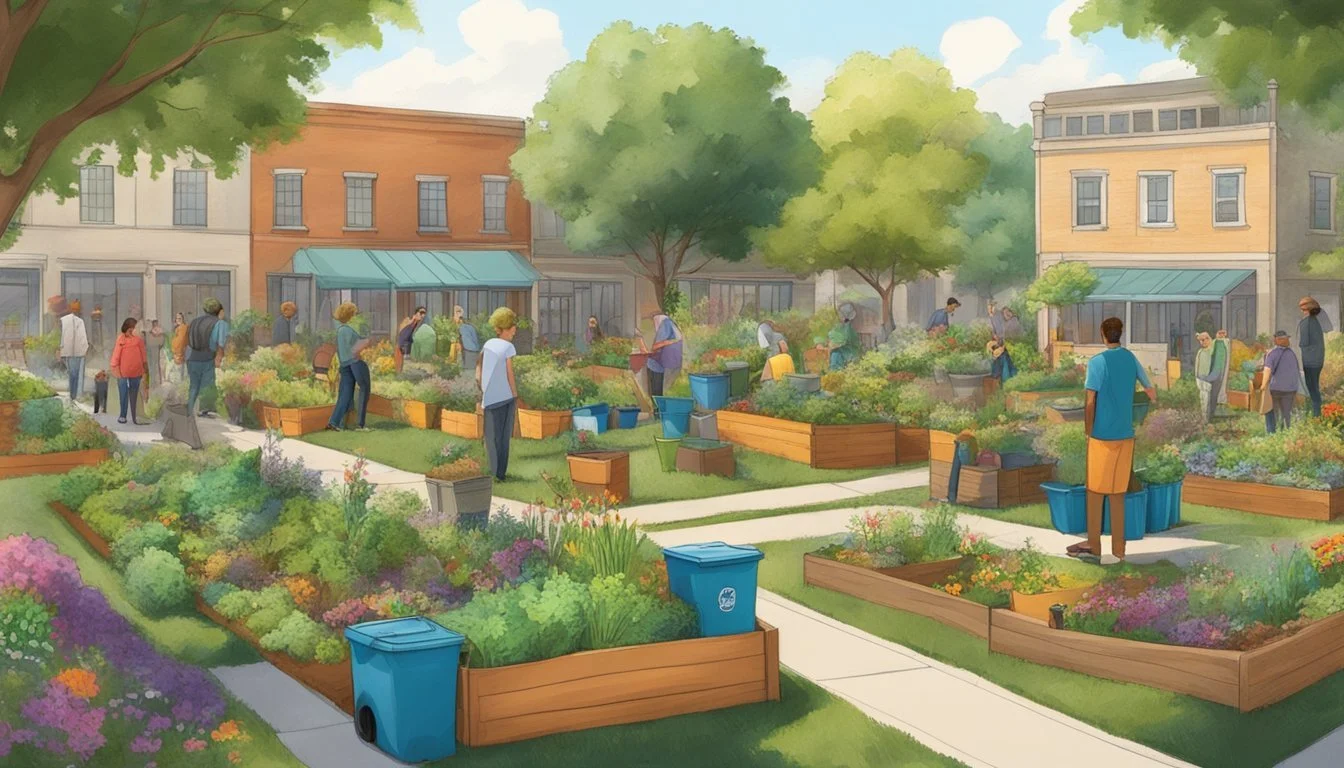Guide to Composting in Norman, OK
Essential Tips for Effective Waste Reduction
Composting in Norman, Oklahoma, provides an excellent opportunity for residents to contribute to a healthier environment by transforming organic waste into valuable soil amendment. The process involves the decomposition of organic materials, such as kitchen scraps and yard waste, which results in a nutrient-rich compost that can enhance soil quality and promote plant growth. This sustainable practice not only reduces the amount of waste sent to landfills but also helps conserve natural resources and supports the local ecosystem.
The City of Norman offers a compost facility where residents can obtain compost for personal use, either for free by self-loading or for a nominal fee if assistance is needed. The availability of compost varies, so contacting the site directly is advisable. For those who may not have the time or space to compost at home, organizations like Fertile Ground provide residential composting services, highlighting the community's commitment to eco-friendly practices.
Residents engaging in composting can reap multiple benefits, such as reducing their environmental footprint and cultivating healthier gardens. The natural process of composting empowers individuals to take an active role in waste management while also supporting Norman's vision of a sustainable and environmentally responsible community.
Understanding Composting Basics
Composting is a key component of reducing waste and enriching soil in Norman, OK, involving the natural decomposition of organic matter into a valuable soil amendment.
What is Composting?
Composting is the controlled breakdown of organic materials, such as food scraps and yard waste, into a nutrient-rich substance known as compost. This natural process relies on microorganisms and other decomposers to convert waste into a beneficial product that improves soil health.
Benefits of Composting
Composting offers numerous advantages for both the environment and gardeners. Not only does it reduce the amount of waste sent to landfills, but it also produces a soil amendment that enhances soil structure, promotes moisture retention, and provides essential nutrients to plants. Additionally, composting supports the reduction of greenhouse gas emissions typically associated with decomposing waste.
Composting Methods
There are several methods of composting that cater to different needs and circumstances. These include:
Backyard composting: Ideal for residential areas with garden space, this method involves creating a compost pile or bin where yard waste and food scraps can decompose over time.
Vermicomposting: Using worms to accelerate the decomposition process, vermicomposting is effective for indoor composting and produces high-quality compost quickly.
Trench composting: This method involves burying organic waste directly into the garden soil, allowing it to decompose without the need for a separate composting structure.
Each method utilizes the principles of aeration, moisture, and a balance of carbon-rich and nitrogen-rich materials to facilitate the transformation of organic matter into compost.
Getting Started with Composting
Composting in Norman, OK begins with selecting an appropriate bin, balancing organic materials, and maintaining suitable moisture and temperature levels to convert waste into nutrient-rich compost.
Choosing the Right Bin
The first step in beginning a composting practice is to choose the right compost bin. Options for residents in Norman include purchasing compost tumblers from local retailers or, during the annual rain barrel sale, directly from the City of Norman. Tumblers can expedite the composting process, though open bins or piles are also effective.
Enclosed bins: Suitable for small spaces and reduces odors.
Open bins/piles: Require more space, but are easier to manage large amounts of waste.
Balancing Greens and Browns
A healthy compost pile needs a balance of green and brown materials. "Greens" are rich in nitrogen and include grass clippings and kitchen scraps, whereas "browns" are carbon-rich materials like dry leaves or cardboard. The City of Norman compost facility processes an enormous amount of yard waste, illustrating the importance of these materials.
Greens (Nitrogen-rich):
Vegetable scraps
Fresh grass clippings
Coffee grounds
Browns (Carbon-rich):
Dry leaves
Twigs
Shredded paper & cardboard
Maintaining Proper Moisture and Temperature
For compost to develop properly, it should have the consistency of a damp sponge, suggesting correct moisture levels. Add water periodically if the compost feels dry. Moreover, the internal temperature of the pile should be warm to accelerate the decomposition process. If the compost pile starts cooking, it is a sign that the materials are breaking down effectively.
Moisture: Achieve the dampness of a wrung-out sponge.
Temperature: Warm to the touch, typically between 130°F - 150°F.
By carefully selecting the right compost bin, achieving the correct mix of greens and browns, and maintaining the right moisture and temperature, composting in Norman can be both successful and rewarding.
Composting Materials
When considering composting in Norman, OK, it’s important to distinguish between materials that are compostable and those that should not be added to your compost bin.
What Can Be Composted
The City of Norman encourages the composting of organic materials such as grass clippings, leaves, and twigs which are all excellent additions to a compost pile. Residents can also include coffee grounds and food scraps minus any meat, dairy, or oily substances. Additionally, plain paper, including non-coated paper plates and napkins, can be a carbon-rich material for the compost.
Grass Clippings: High in nitrogen, break down quickly.
Leaves & Twigs: Provide carbon, help create air pockets for better aeration.
Coffee Grounds: Add nitrogen and worms love them.
Food Scraps: Only plant-based scraps should be composted to avoid pests and bad odors.
Paper: Uncoated, not glossy, shredded paper is best to facilitate decomposition.
What Cannot Be Composted
Some items that should never be included in your compost bin are meat, bones, dairy, and any fats, oils, or grease as they can attract pests and cause odors. The City of Norman's Compost Facility suggests avoiding these products. In addition, materials like coated or printed paper, which might contain harmful chemicals, do not break down easily and could contaminate the compost.
Meat & Bones: Create odors and attract wildlife and pests.
Dairy Products: Similar issues as with meats, can also lead to an imbalanced compost.
Fat, Oil, Grease: Hard to break down, cause odors, and can create a dense, airless compost structure.
Coated or Printed Paper: May contain inks and chemicals detrimental to the final compost quality.
Composting for Norman Residents
Norman residents play a critical role in the city's overall waste reduction strategy through active participation in composting programs. The City of Norman provides facilities and guidance to encourage composting, which supports environmental sustainability.
Residential Composting Regulations
In Norman, community members are encouraged to compost yard waste as part of the city's sanitation efforts. Proof of residency is required for individuals participating in the composting program. It is important that residents only bring acceptable materials to the compost facility to avoid contaminated loads. Materials that cannot be composted should be disposed of in accordance to the city’s solid waste guidelines.
Utilizing the City of Norman Compost Facility
Located at 398 Bratcher Miner Road, the City of Norman Compost Facility is open to residents looking to contribute to the composting process or obtain compost for personal use. Residents must demonstrate proof of residency to take advantage of the facility. The compost is available free of charge for personal loading, but a loading fee of $10 per scoop is applied if the facility’s equipment is used. This service supports the city’s sanitation department by diverting waste from landfills and creating a valuable product for the community.
Troubleshooting Common Composting Issues
In Norman, OK, maintaining a successful compost batch may encounter challenges such as unwanted odors, pests, and moisture problems. Recognizing and addressing these issues promptly can ensure efficient decomposition.
Managing Odors and Pests
Unpleasant smells often result from imbalances within the compost pile, typically signaling anaerobic conditions or nitrogen excess. To mitigate odors and deter pests, integrate practices like layering brown materials (carbon sources) to neutralize excess nitrogen and regularly turning the pile to maintain adequate airflow.
For Odor Control:
Balance: Add more browns like dry leaves or shredded paper
Aeration: Turn pile to introduce oxygen and reduce anaerobic bacteria
Dealing with Excessive Moisture or Dryness
Compost should feel like a wrung-out sponge, but if it’s too wet, it can lead to a slow decomposition process and an unpleasant smell. Conversely, too dry compost might stall decomposition. Moisture can be adjusted:
To Dry Compost: Add water or wet materials and mix thoroughly.
To Wet Compost: Add dry, absorbent materials (brown) and ensure proper drainage.
Ensuring Efficient Decomposition
Proper decomposition hinges on the right balance of materials, adequate heat, and sufficient air flow. Decomposition can be optimized by:
Size of materials: Shred or chop larger items to quicken breakdown
Regular Mixing: Frequent turning equates to faster decomposition, as it distributes microbes and heat evenly
Advanced Composting Techniques
This section covers specialized methods for individuals and entities dealing with high-volume composting, appropriate additives to enhance compost quality, and efforts at the community level to manage and promote composting effectively.
Composting Large Quantities
In Norman, OK, the City's compost facility handles up to 30,000 tons of yard waste annually, demonstrating that composting on a large scale is feasible with the right system in place. Commercial businesses and residents with extensive landscape can employ multiple methods to compost sizable amounts of organic waste such as:
Windrow Composting: Large elongated piles (windrows) are formed and periodically turned.
Aerated Static Pile Composting: Organic waste is mixed with bulk agents and laid over a series of pipes that inject air into the pile.
These techniques can efficiently manage large volumes of yard trim and other compostable materials.
Adding Composting Additives
Additives are used to enhance compost activity and balance the carbon-to-nitrogen ratio, which is crucial for effective compost production. Common additives include:
Nitrogen-rich materials: coffee grounds, grass clippings, or animal manure.
Carbon-rich materials: leaves, straw, or sawdust.
It is important to blend additives thoroughly and monitor the compost to maintain the right conditions for decomposition.
Community-Scale Composting Initiatives
Community composting initiatives help to significantly reduce waste in landfills and create a valuable product for gardening and agriculture. In Norman:
Residents may participate in local composting by contributing yard waste to the City Compost Site.
Community gardens and local farms sometimes offer collaborative composting programs where residents can bring compostable materials.
Education and outreach programs aim to involve more community members and commercial entities in composting efforts.
Compost Use and Application
Composting in Norman, OK provides residents with a sustainable way to recycle organic waste into a valuable soil amendment. It offers multiple horticultural and environmental benefits through its use as fertilizer, in gardens, and for erosion control. The resulting product is a high-quality compost that enriches the soil and promotes a greener environment.
Quality of Finished Compost
The quality of finished compost is critical—it should be dark, crumbly, and have an earthy smell. The City of Norman ensures that its compost is of high quality, suitable as a soil amendment that introduces beneficial microorganisms and nutrients into the garden soil. The City of Norman's compost facility follows a regular schedule, making compost available every 90-120 days for local residents.
Using Compost as Fertilizer and in Gardens
Finished compost acts as an organic fertilizer and is a key component for healthy gardens. It slowly releases vital nutrients, which plants can absorb over time. For gardeners in Norman, compost can be obtained for free, provided they load it themselves, or for a small fee if assistance is required. When applying compost to gardens, a two to three-inch layer can be mixed into the garden beds or used as a mulch to conserve moisture and suppress weeds.
Environmental Benefits and Erosion Control
The environmental benefits of composting extend beyond nutrient recycling. It also plays a role in erosion control by stabilizing soil and reducing runoff. High quality compost can increase the soil's water retention capability, enabling it to better withstand periods of heavy rain and reducing the likelihood of soil and nutrient loss. The natural and organic matter in compost helps to bind soil particles together, which is essential in preserving Norman’s local soil quality. Community initiatives like Fertile Ground demonstrate the environmental commitments through their composting services.
Norman's Compost Program and Future Outlook
The city of Norman has embraced composting as a critical component to managing organic waste, aiming to reduce landfill use and provide the community with fertile soil amendments.
City Initiatives and Goals
The City of Norman operates a compost facility that transforms yard waste into compost, offsetting substantial amounts of waste from landfills. Annually, approximately 30,000 tons of yard waste are converted into compost, which supports soil fertility and improves nutrient content. This is part of a broader waste management strategy to promote recycling and sustainable sanitation practices. The goal is not only to manage waste but to turn it into a valuable resource for the community.
To facilitate low-cost waste solutions, Norman's compost facility provides free compost to residents, with proof of residency, and charges commercial businesses a nominal fee. This initiative aligns with the city's commitment to environmental stewardship and provides a direct benefit to the local community.
Future outlook for the program aims at maintaining the annual compost production while exploring new ways to engage the public and enhance the operational efficiency of yard waste collection.
Educational Resources and Workshops
The City of Norman's departments play an active role in educating residents about the importance and methods of composting. The city's website, normanok.gov, serves as a hub for information and updates regarding composting. The site offers educational resources that provide insights into composting processes and the benefits they entail.
Workshops conducted by experts, including those from the Oklahoma Compost Conference, foster community engagement and knowledge sharing. These events are designed to equip residents with the tools and know-how to start composting effectively, even if they begin on a small scale with simple kitchen scraps.
By teaching the community about effective organic waste management and its impact on environmental health, Norman lays the foundation for sustainable living practices and responsible recycling of waste and recyclables.

